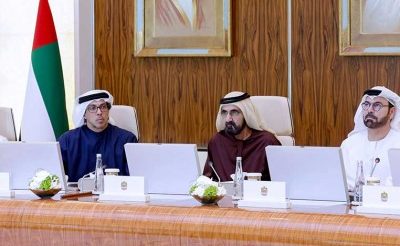UAE Cabinet Advances Green Agenda with Focus on Energy Efficiency and Innovation

In a recent UAE Cabinet meeting led by His Highness Sheikh Mohammed bin Rashid Al Maktoum, significant strides towards energy efficiency, sustainability, and technological advancement were deliberated. A pivotal move was the green light given to the Science, Technology, and Innovation Policy, designed to catalyze research and development across six critical domains. These areas encompass energy transition, healthcare, food and water security, digital technology, and advanced materials manufacturing. Of notable importance was the approval of federal regulations targeting energy management within industrial facilities. Aligned with the National Water and Energy Demand Management Programme 2050, these regulations aim to streamline energy consumption, ultimately aiming for a substantial 33% reduction in total energy demand by 2050. Industries such as aluminum production, iron, cement, petrochemicals, water desalination, chemicals, and light industries will come under scrutiny for emissions reduction and enhanced sustainability measures. The anticipated impact of these regulations is profound. By 2050, energy savings equivalent to 25.8 tonnes of oil are projected within the industrial sector, with a parallel expected improvement in air quality by 32%. This improvement hinges on a significant decrease in carbon emissions, estimated at a noteworthy 63 million tonnes. Financial returns are also anticipated, with an impressive AED 14 billion expected to be generated by 2050, driven by reductions in energy consumption and electricity usage. In alignment with the UAE’s commitment to environmental protection and sustainable practices, the Cabinet reviewed the outcomes of implementing the National Biosecurity Framework 2023. This underlines the nation’s dedication to fostering global collaboration and knowledge exchange across various domains, including culture, education, and technology. Looking forward, the UAE’s national policy will center on solar energy, hydrogen production and storage, healthcare (specifically cardiovascular disorders and cancer sciences), environmental concerns related to fishing and aquaculture, sustainable food production technology, desalination, water recycling, artificial intelligence, machine learning, data science, cybersecurity, and industrial sectors focusing on 3D printing and smart materials. These initiatives not only highlight the UAE’s commitment to advancing sustainable practices but also underscore its role in driving global efforts towards a greener future. Through strategic policies and regulatory frameworks, the UAE aims to position itself as a leader in energy efficiency, technological innovation, and environmental stewardship, contributing significantly to global sustainability endeavors.
